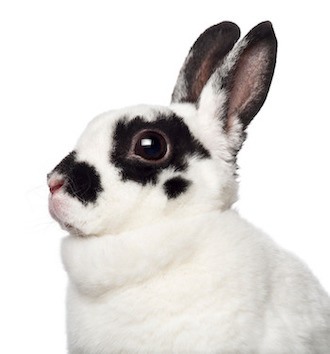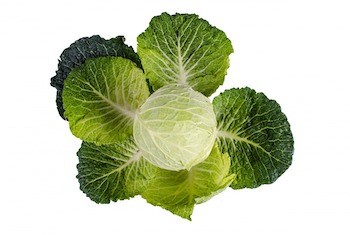Rabbits are usually depicted munching on rabbits or stealing cabbage leaves from the vegetable garden. How much truth is in that? Can rabbits eat cabbage?
The short answer is yes because rabbits benefit from eating leafy greens, and they should have some fresh fruit and vegetables each day. On the other hand, cabbage is known to trigger gas and digestive upsets, which rabbits experience to a higher degree.
How can you safely feed cabbage to your bunny? Read this article to find out.
PROS
Cabbage is safe and healthy for bunnies because it contains lots of:
- Fibres. Rabbits are herbivores and so their digestive systems have adapted at breaking down fibrous foods. Cabbage has lots of fibres, which keep your rabbit’s good gut bacteria happy and healthy.
- Vitamin B6 is involved in the breaking down of protein in the body. This mechanism is important for proper muscle functioning, especially in domesticated rabbits who exercise less than their wild peers.
- Calcium keeps the bones and teeth strong. However, excess calcium thickens your rabbit’s urine and can cause infections.
- Potassium protects your bunny’s heart and nervous system.
- Vitamin K is essential for pregnant or breastfeeding does.
Cabbage is also a good snack because it’s crunchy. Rabbits are prone to overgrown teeth, and so they need crunchy foods to keep this issue in check.
CONS

- Cabbages cause bloating. The consequence is that your rabbit can experience diarrhoea, gas, loss of appetite and pain. If you notice any of these symptoms, stop feeding cabbage to your bunny and call the vet asap.
- Cabbage might cause goitre if fed exclusively to rabbits. A few days of exclusive consumption of cruciferous vegetables in rabbits affects their thyroids and reproductive organs. Again, moderation is key, as well as a varied diet.
- Some types of cabbage have a lot of water. While water is good for hydration, excess water leads to runny stools and GI upsets.
How Much Cabbage Can I Feed My Rabbit? Tips and Recommendations
One-sixth of a cup of cabbage per pound of body weight, three times per week is the maximum amount of cabbage you can safely feed to your rabbit.
The rule of thumb is that rabbits should eat half a cup of leafy greens per pound of body weight per day. Add a couple of other vegetables apart from cabbage to your rabbit’s daily portion of leafy greens, and vary your rabbit’s menu every day.
- Stick to dark green types of cabbage because these contain more nutrients and less water. Savoy cabbage is a good choice, and it also appears to trigger less gas.
- White cabbage isn’t dangerous, but it has fewer nutrients and it can bloat your rabbit.
- Red cabbage is good for pregnant does because it contains the most vitamin K of all cabbage types.
- Sweetheart cabbage is safe for your rabbit, but you’ll notice that its center leaves are whiter. These cabbage leaves are richer in water, and so they might cause loose and reeking stools in your rabbit.
- Avoid giving cooked cabbage to your rabbit because it’s less crunchy, so not that good at trimming your rabbit’s ever-growing teeth. Another disadvantage is that the cooking process destroys some important micronutrients.
- Wash the cabbage carefully before offering it to your rabbit to eliminate any trace of dirt and pesticides.
- Don’t give baby rabbits cabbage if they’re younger than three months old.
- Don’t give your rabbit cabbage every day. Three times per week, in combination with other veggies and fruits is more than enough.
- Start gradually. Offer your rabbit just one piece of cut cabbage and watch for any adverse effects that relate to his digestion. If your rabbit has explosive diarrhoea, doesn’t eat and is feeling very tired, take it to the vet.

